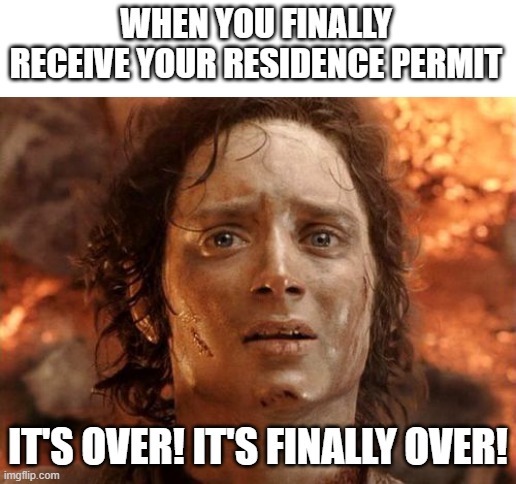Germany has always been known for its high standard of living. The country offers a wide range of services and benefits to its residents. If you want to stay and work in Germany as an expatriate, you may need to obtain a residence permit.
What is a residence permit?
A residence permit is a document issued by the German government to foreign nationals who wish to reside in Germany permanently. There are two types of residence permits: a short term permit (for stays of less than three months) and a long term permit (for stays longer than three months). Depending on your nationality and the reason for moving to Germany, the type of permit you apply to may vary.
EU and EEA citizens
Citizens of European Union (EU) and European Economic Area (EEA) countries have open access to Germany’s labour market. People from these countries can live and work in Germany freely without a visa. However, if you stay in Germany for longer than three months, you must register at your local citizens’ office (Bürgermeisteramt).
Swiss Citizens
If you’re from Switzerland, you also have freedom of movement in the EU, but if your main purpose is to live and work in another country, you’ll need to apply for a specific declaratory residence permit at your local Foreigners’ Office (Ausländerbehörde).
Non-EU / EEA citizens
Citizens from outside the European Union and the European Economic Area (EU/EEA) may need to apply for an EU residence permit, which highly depending on the duration and the purpose of stay.
Short stays (business and leisure)
If you stay in Germany for less than 90 days, you don’t need the permit. However, for certain nationalities, you might need a Schengen visa instead.
Short stays (for employment purpose)
The duration of stay is not the only factor that determines if you need a residence permit or not. If you want to work in Germany, even if your stay there is less than 90 days, first you must apply for a German visa and then convert it to a residence permit.
Longer stays (over 90 days)
If you plan to stay in Germany for longer than 90 days, you’ll need to apply for a residency permit. Residents of Israel, Canada, Australia, the Republic of Korea, Japan and the United States of America may enter Germany without a Visa and then apply for a residency permit from within Germany.
Citizens of other countries must apply for a national visa at the German embassy or consulate in their country of residence before they travel to Germany. After arriving in Germany, you can change it into a residence permit from the Foreigners’ Offices.
If you won’t have a source of income in Germany, you’ll also need to open a blocked bank account, either before applying for a visa or before submitting your permit application. It is to ensure that you have a fixed deployable financial resource for every month.
Types of German residence permit
Temporary residence permit (Aufenthalterlaubnis)
A temporary residence permit is the main type of permit issued to foreigners living in Germany. It is generally valid up to one year and can usually last longer if your circumstances don’t change.
It is linked to your purpose for visiting the country and the information you provided when applying for your visa.
Permanent settlement permit (Niederlassungserlaubnis)
After living in Germany for a certain period of time, all expatriates who possess a residence permit are eligible to apply for a permanent residency permit. This is usually five year, but can be less for high-skilled workers or graduates from German universities.
If you want to live in Germany permanently, then the settlement permit is a good option. You no longer have to line up at Ausländerbehörde to extend your visa or to put up with toxic work environment for the sake of your work visa.
German residence permit application procedure
The application procedure for obtaining the permit can be overwhelming, especially if you don’t know what to expect. Before you can apply for a residency permit, there are several steps you need to take, including registering your address and obtaining health insurance. Learn more about the application procedures here!

Is it common to have one’s German residence permit application rejected?
If your application is refused, you will be sent a letter outlining the reasons why. The most common reason why an application is rejected is failing to provide the required supporting documents. The letter explains the next steps to take and includes any relevant information, such as how to lodge an appeal.
Why do I need to renew my German residence permit? And how?
A temporary residence permit in Germany usually lasts for one year. If you’re a foreigner, don’t expect to be notified by the immigration office if your residence permit expires. You should therefore make sure that you renew your permit well in advance.
Extending your temporary residence permit in Germany is largely a formality as long as your personal circumstances are the same as when you originally applied. If your employment, marital or financial status changes significantly you should contact your local foreigners’ office to check how this impacts your residency status.
It is essential to renew your permit long before its expiry date to avoid an illegal stay which may mean you are banned from entering Germany in the future. The cost of renewing the permit is usually 50-80 euros, depending on location and the complexity of your case.
If you do not speak German yet and you need someone to accompany you to the foreign office to your residence permit extension, you can book a helper here!
